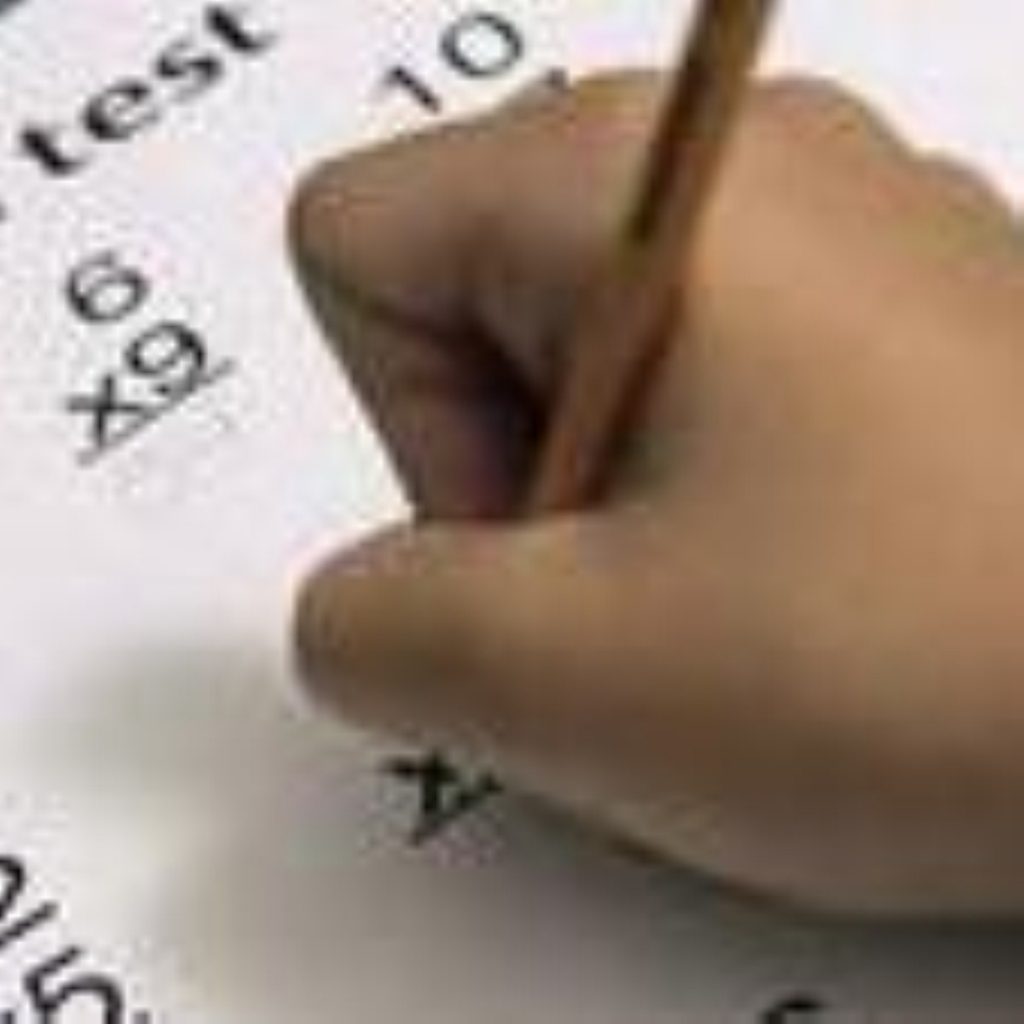‘One in five children can’t do maths’
By Alice Cannet
One in five children has not grasped basic maths by the time they reach secondary school, damaging their chances in life, a report published today by a committee of MPs says.
The report by the committee of public accounts (PAC) calls for more action to be taken by the Department for Children, Schools and Families (DCSF) to meet their targets and improve their current national strategy.
“The Government is not getting value for the money they have piled into education and the country is falling behind in international league tables as a result,” the shadow schools minister, Nick Gibb said.


He continued: “The Government has failed to grasp the nettle and replace methods of teaching which have failed with tried and tested methods used in countries that have much higher levels of maths achievement.”
The DCSF failed to reach their 2006 target of 85 per cent of pupils achieving the expected maths level and in 2007, some 66,000 ‘relatively able’ pupils didn’t progress according to their early attainment, the report found.
“This can have serious long-term consequences: for many then continue through secondary school without acquiring basic numeracy skills, impairing their chances in life and leaving them later in need of expensive remedial education,” Edward Leigh, chairman of the PAC said.
“Children can develop at different stages and while there is obviously never any room ever for complacency the picture Edward Leigh paints does not accord with the general achievement of mathematics in primary school,” Christine Blower, General Secretary of National Union of Teachers (NUT) said.
Details of the recent standstill in maths results’ improvement at primary schools prompted Mr Leigh and other MPs to urge the DCSF to rethink its strategy, if it wants to meet their 2011 targets.
Mr Leigh commented: “It is disgraceful that over one fifth of all primary school children reach the end of their primary education without a secure grasp of basic mathematical skills.”
Mrs Blower from the NUT disagreed however with his remarks: “Edward Leigh has come to the conclusion that simply because 20% of pupils don’t reach the expected level at Key Stage 2 that somehow they are failing,” she said “there are very many children who have made incredible progress form a low base due to the hard work and commitment of teachers.”
In 2007-08, £104 million was spent on the national strategy designed by the DCSF which seeks to improve maths performance in primary schools. A yearly budget of £2.3 billion is dedicated to teaching the subject alone.
According to the report, the DCSF considered there was no need for extra funding for disadvantaged schools in deprived areas but they admitted that high staff turnover and recruitment issues in such schools contributed to their poor attainment.
A programme aiming to train 13,000 specialist maths teachers over the next ten years is also part of the DCSF’s National Strategy. It was heavily criticised as “far too long” by Mr Leigh who said the Department needed to look for ways to accelerate the programme.
Social class was also thought to be a very important factor in schools disparity and the committee called for the DCSF to encourage local authorities who succeed at narrowing the attainment gap in deprived areas to “spread good practices.”
One of the most successful aspects of the national strategy so far has been the Improving Schools Programme which saw a significant increase of the results of underachieving schools in disadvantaged areas.
The key to this success was better relationships between local authorities and schools, a more appropriate expertise sent to help the schools supported by tough school leadership and a stable staff.
Although it was short of its 85 per cent target, the government achieved its highest result recorded last year with 79 per cent of 11 year-old pupils meeting the expected standard at Key Stage 2 in national tests.









